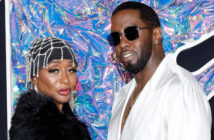Following the recent announcement of Netflix’s new docuseries, Queen Cleopatra, which casts Black British actress Adele James as its coveted lead, it appears the Queen’s ethnicity is the subject of discussion once again.
Even centuries after her reign, the life of Cleopatra VII Philopator, Queen of Egypt from 51 to 30 BC, is fascinating.
Cleopatra led the Ptolemaic dynasty for slightly over two decades, commanding the respect of her people from the age of 18 until the mystery circumstances surrounding her rumoured suicide at 39. Her life story has been the focus of numerous Hollywood film projects, including one of the earliest six-reel feature films ever made in the United States in 1912, perhaps for that and a variety of other reasons. Of course, the most known is perhaps the 1968 version starring late Hollywood beauty Elizabeth Taylor.
Yes, you read that correctly. A white actress with British-American ancestry through London and Kansas famously played the Queen of Egypt. Cleopatra’s former dominion in Northeast Africa is far away, isn’t it?
The series, which will be narrated by Jada Pinkett-Smith, is the first in an anthology that promises to portray the tales of notable African queens. Sounds fantastic on paper, however due to Cleopatra’s race, casting her has sadly been a hotly contested issue for as long as most people can remember. On the one hand, Egypt’s location in Africa makes it a foregone conclusion that she is of African ancestry. However, she is thought to have been born to the Macedonian Greek Ptolemaic dynasty, which was based in Ancient Greece, which leads some historians to assume that she has little to no Egyptian lineage. Many people firmly believe that she was Persian, though.
The theory about Cleopatra being black came from her mother and maternal grandmother, both of whom strangely were almost completely omitted from history books. Check out below what director Tina Gharavi had to say about the controversy surrounding her upcoming production, via Variety, as the race of Cleopatra is hotly debated:
“Born in Iran, I am a Persian, and Cleopatra’s heritage has been attributed at one time or another to the Greeks, the Macedonians and the Persians. The known facts are that her Macedonian Greek family — the Ptolemaic lineage — intermarried with West Asian’s Seleucid dynasty and had been in Egypt for 300 years. Cleopatra was eight generations away from these Ptolemaic ancestors, making the chance of her being white somewhat unlikely. After 300 years, surely, we can safely say Cleopatra was Egyptian. She was no more Greek or Macedonian than Rita Wilson or Jennifer Aniston. Both are one generation from Greece.
Doing the research, I realized what a political act it would be to see Cleopatra portrayed by a Black actress. For me, the idea that people had gotten it so incredibly wrong before — historically, from Theda Bara to Monica Bellucci, and recently, with Angelina Jolie and Gal Gadot in the running to play her — meant we had to get it even more right. The hunt was on to find the right performer to bring Cleopatra into the 21st century.
Why shouldn’t Cleopatra be a melanated sister? And why do some people need Cleopatra to be white? Her proximity to whiteness seems to give her value, and for some Egyptians, it seems to really matter.”
The last sentence is an extremely hot take that got many Egyptians talking on social media. With the series set to begin airing in just a matter of weeks on May 10, now’s definitely the time to be having these types of cultural conversations.
Adele James, the actress playing the iconic queen, shot back at online critics in a Twitter post that includes screengrabs of abusive comments and a racist slur. “If you don’t like the casting, don’t watch the show,” she said.
Just FYI, this kind of behaviour won’t be tolerated on my account. You will be blocked without hesitation!!!
If you don’t like the casting don’t watch the show. Or do & engage in (expert) opinion different to yours. Either way, I’M GASSED and will continue to be! 🕺🏽🕺🏽🕺🏽 pic.twitter.com/zhJjaUkxyc
— Adele James (@Adele_JJames) April 13, 2023




1 Comment
Pingback: Egypt Incensed By Dutch Museum’s Show On Ancient Egypt Featuring Beyoncé